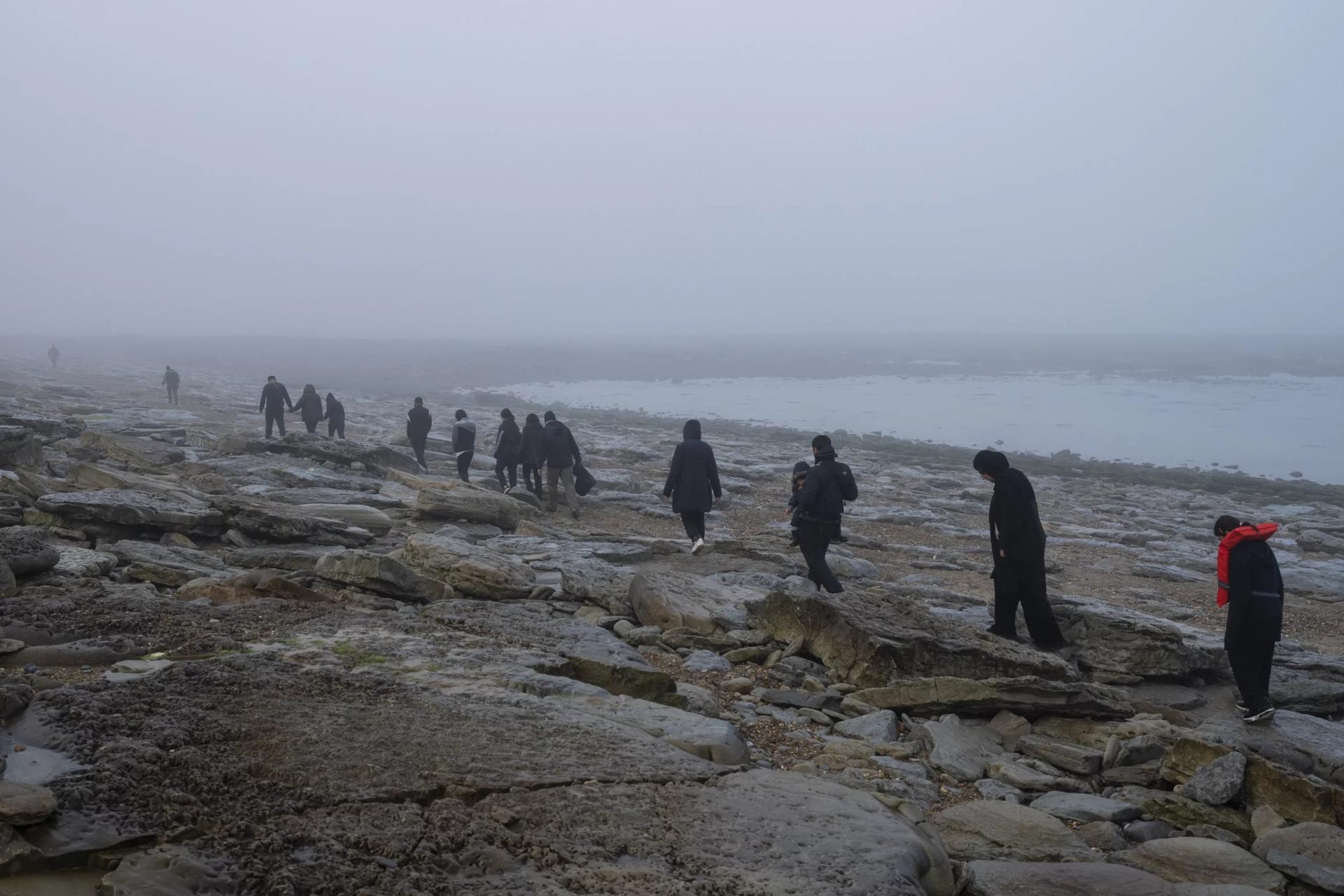LEICESTER, United Kingdom – A new report by Britain’s leading Catholic charity for supporting refugees says the experiences of homelessness among people refused asylum has gotten worse since the COVID-19 pandemic.
The Jesuit Refugee Service UK (JRS UK) published Destitute and in Danger; people made homeless by the Asylum System on Tuesday.
“Many people who had previously been street homeless or couch-surfing had been housed during the pandemic,” the report notes, but said many faced homelessness again after this support was ended after the pandemic.
JRS UK said most people staying informally in others’ houses lived in uncomfortable, overcrowded, and often dirty conditions.
“Of those neither in Home Office accommodation nor in JRS UK hosting or housing: Half did not sleep in a bed. It was common to sleep on the floor, the sofa, or a chair; parents staying informally with family or friends with their children described sleeping in one room in cramped conditions with their children,” the report says.
It also says conditions in Home Office issued asylum accommodations are “very poor, and often does not feel safe.”
The Catholic charity said recurring themes about Home Office accommodation included overcrowding, with parents and children sharing a room that was their only familial space; lack of privacy, and associated lack of even the most basic freedom; no space to relax other than bedrooms; basic facilities such as washing machines being broken for long periods of time.
The report said living conditions for refugee seekers were often a “volatile situation.”
It said break-ins and thefts were common and contributed to a general climate of fear, adding many people refused asylum, declared appeal rights exhausted, and made destitute are ultimately recognized as refugees after submitting fresh asylum claims.
“That is, presenting new evidence demonstrating that they need asylum,” the report says, noting that in 2023 almost 2,300 people had previously been refused asylum, and told they had no further chance to appeal, were recognized as needing asylum or another form of leave to remain in the UK after submitting a fresh claim.
The research found that “rough sleeping” – the common British term for living on the streets – is very common among people refused asylum, and even those not currently street homeless are perpetually at risk of it.
The report also highlights that destitution both has a negative impact on both physical and mental health, and said there were strong indications this was actively dangerous to individuals who already had serious health problems.
The Director of JRS UK, Sarah Teather, said for years, the Catholic organization has supported people made destitute by the asylum system – “and we see the crushing impact destitution has on them.”
“This new report shares their stories, and the reality it reveals is horrifying. People who sought safety here are plunged into homelessness and danger, left vulnerable to exploitation, abuse, and life-threatening illness,” she said.
“This is not new. Some people we work with have lived like this for decades, as an intentional consequence of successive governments’ policies. This must, finally stop. The government has an opportunity to take a new approach. It must now end the Hostile Environment and enforced destitution,” Teather added.
The report made several recommendations, the first of which was the British government to stop the “Hostile/Compliant Environment” – issued by the Conservative Government and not ended by the newly elected Labour Government – which makes it more difficult for unregistered immigrants from getting support and jobs in the country.
“The systemic marginalization of people without immigration status is the root cause of asylum destitution. The Hostile, or Compliant, Environment intentionally builds barriers to essential services, bringing immigration enforcement into every sphere of life. It must end,” the document says.
It also calls for an end of the policy that says there is no recourse to public funds and says people refused asylum should be able to access support where they need it.
“Restrictions on access to public funds bar people from basic safety nets on the basis of their immigration status. They are a key tool in manufacturing asylum destitution and should be abolished,” the report says.
Destitute and in Danger; people made homeless by the Asylum System also says the ban on work for people seeking asylum consigns them to deep poverty and, when asylum support is cut off, makes them destitute.
“It also marginalizes them and makes it harder for them to take up work when their status is eventually resolved. Most people seeking asylum desperately want the opportunity to work and contribute to society,” the report says.
The report also calls on the government to make a simplified route to settled status for everyone who has made the UK their home and is living here long-term. It adds government also needs to expand the “move-on period” for newly recognized refugees to find housing from 28 days to 56 days, saying the current policy “is simply not enough time to find somewhere else to live, access mainstream support, or find work.”
The report also calls on local UK governments to widen eligibility for homelessness support services to include those without recourse to public funds as far as possible and to ensure robust data protection policies.
Dr. Sophie Cartwright, the author of the report, said the enforced destitution of people refused asylum “is shameful.”
“People who just wanted to be safe are pushed, by government policy, to the very edges of society. They have no safe way to meet their basic needs and no home. They regularly have nowhere they can rest or go just to feel secure. This is not human. It’s not who we are,” she said.
“If any of us were forced to leave our home, we would all want somewhere to be safe. We would all want a chance to rebuild our lives. It’s time to make that happen,” Cartwright added.
Follow Charles Collins on X: @CharlesinRome















